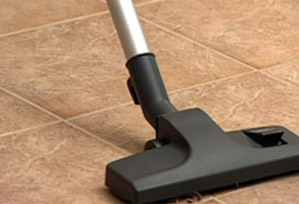404-872-0024
770-475-4496
980-819-5515
615-771-7477
843-856-8255
Natural Stone Maintenance
Proper maintenance for natural stone is necessary.
In a way, Mother Nature has taken care of your natural stone flooring for millions of years. Now it’s your turn.
In this section we’ve outlined what you need to know about caring for your beautiful natural stone today and maintaining its timeless look for many tomorrows.
Plus, knowing what’s expected of you regarding upkeep can be a determining factor in which type of natural flooring you choose to buy.
All reasons why we called on our years of natural stone experience and created this important section.
So read on. Get to know exactly how to take care of your natural stone investment and it will reward you and your home for many years to come.
To keep natural stone clean, fight dirty.
Sand, dirt and grit do the most damage to natural stone surfaces due to their abrasiveness.
Floors should be dust mopped frequently using a clean, non-treated dry dust mop or broom.
A vacuum cleaner can be very helpful, especially on textured floors, but it needs to be in good condition and have no beater bar, so as to avoid scratching your beautiful floor.
Vacuum cleaner attachments are also useful for hard to reach areas.
Be preventative. Walk-off mats or area rugs on either side of exterior entrances will help collect loose dirt before it reaches your stone floor.
Make sure that the underside of the mat or rug has a non-slip surface.
These mats need to be kept clean, as well. So shake, shake, shake!
Damp mopping your natural stone floor will help keep it looking beautiful for life.
Call on us to suggest specialty products designed for use on your stone floors.
Always blot spills immediately. A neutral pH detergent or pure soap, such as Liquid Ivory, and warm water, can be used for spills or periodic complete cleaning.
Be sure to rinse the floor thoroughly and dry the surface with a soft, clean cloth. Too much cleaner or soap may leave a film and cause streaks. Change your rinse water frequently.
Do not use products that contain lemon juice, vinegar or other acids on marble, limestone or travertine.
You should avoid using products that contain abrasive cleaners, cleansers (dry or soft) or any ammonia-based cleaners on any stone. These products will dull its luster.
Also, do not use retail grout cleaners, scouring powders or bathroom tub and tile cleaners on your stone.
For heavens sake please don't mix bleach and ammonia; this combination creates a toxic and lethal gas.
To remove algae or moss from your stone in outdoor pool, patio or hot tub areas, flush with clear water and use a mild bleach solution.
Finally, note the following.
You should know that once your natural stone is installed it is your responsibility to properly maintain caulking in heavy water-use areas to prevent damage.
Additionally, it’s best to take care when moving heavy objects across your stone floor to avoid scratching or chipping.
Cover furniture and table legs with protectors to guard your floor against damage.
Remember that each stone has its own level of porosity that makes some stone floors more susceptible to staining than others.
So, based upon your lifestyle and the type of stone you choose, sealing your stone may be an option to consider.
We recommend that the sealing be performed by a reliable professional.
A natural stone floor is a work of wonder that needs a little work from you.
But time spent caring for it will help maintain its classic beauty and unique personality for years to come.



